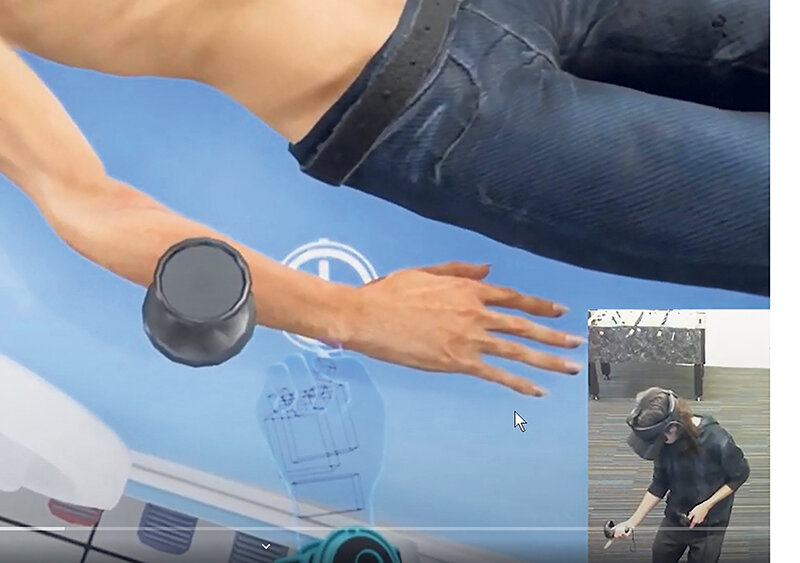Virtual reality training for health-care heroes
Virtual reality learning tools allow practical nursing students at Bow Valley College to practise valuable skills like cardiac assessments. supplied
Many people working in health care bear enormous responsibilities; their decisions can be a matter of life and death. Add to this a fast-paced and potentially stressful work environment – exacerbated by the coronavirus pandemic – and the need for highly skilled and competent personnel becomes even more obvious.
This is a challenge to which Canada’s colleges and institutes have mustered a robust response, says Denise Amyot, president and CEO of Colleges and Institutes Canada (CICan). “Across the country, we have over 1,300 programs that are relevant to health care and biosciences. We also have 430 programs with a focus on public safety and first response. It means that a high percentage of the heroes working on the front lines are trained at a college or institute.”
As part of the initial COVID-19 response, colleges and institutes offered support by stepping up the production of PPEs and other supplies, accelerated accreditation processes to meet urgent personnel needs, lend out equipment like ventilators, and worked closely with community partners to devise creative solutions.
In addition, these post-secondary education institutions have embraced technology advancements to continue to offer the high-quality and hands-on programs for which they are known. An example comes from a partnership between ICOM Productions and Bow Valley College, where “virtual reality in learning is not just taking a step – but a leap – forward,” says Greg Surbey, ICOM’s founder and managing partner.
Students in practical nursing programs are often trained on dummies to assess symptoms and identify disorders, yet Bow Valley College was looking to provide a more realistic experience. “A few years ago, I met with Dr. Misheck Mwaba, who is now president of Bow Valley College. We decided that building VR scenarios for the practical nursing program was an obvious starting point,” recalls Mr. Surbey.
One program, which focuses on pulmonary assessments, allows nursing students to interact with patients of varying ages, backgrounds and gender, and encounter several scenarios that highlight different disorders, such as asthma, COPD or pneumonia. It allows learners to walk through the steps of assessing a patient and diagnosing the patient’s disorder just as they would in an actual hospital or clinical situation.
In addition, the experience yields thousands of data points that can be collated into meaningful learning measures, explains Mr. Surbey. “We noticed that the students coming out of this training were more confident when they worked with real patients.”
The success of the pulmonary training module inspired VR programming for other practical nursing applications, like cardiac, ears, eyes, nose and throat assessments. Mr. Surbey believes the partnership is helping ICOM Productions to advance its expertise in VR training solutions while Bow Valley College is cementing a reputation for offering cutting-edge education.
Ms. Amyot sees the relationship between colleges and institutes and their partners as “symbiotic,” where each informs the direction of the other – and all reap benefits.
“Due to these linkages, the curriculum is always up to date and focused on the skills and competencies that allow graduates to succeed,” she says, adding that beyond their contribution to improve health outcomes during the pandemic, colleges and institutes are also committed to strengthening Canada’s health system going forward.
For more stories from this feature, visit globeandmail.com

